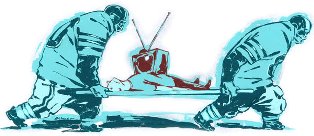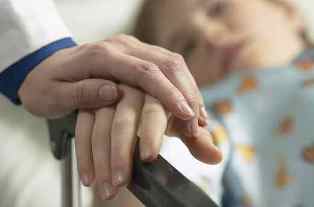February 6th, 2011 by Dinah Miller, M.D. in Health Tips, Humor
No Comments »


 So it’s Super Bowl Sunday and the fans are psychiatric patients waiting to happen — the beer and the beer and the beer, and maybe the fights will break out, and they’ll all end up in therapy. Oh, the angst and the panic, and the pre-game anxiety, and the post-game euphoria or depression.
So it’s Super Bowl Sunday and the fans are psychiatric patients waiting to happen — the beer and the beer and the beer, and maybe the fights will break out, and they’ll all end up in therapy. Oh, the angst and the panic, and the pre-game anxiety, and the post-game euphoria or depression.
New York Times reporter Benedict Carey talks about treatment options in his article, “A Home Treatment Kit for Super Bowl Suffering.” Mr. Carey suggests:
Breathing exercises are highly recommended and become increasingly important as the football contest nears the fourth quarter, when events on the field are likely to prompt strong physiological reactions, like a pounding heart, hyperventilation, even dizziness. These internal cues, as they’re called, can escalate the feeling of panic, a self-reinforcing cycle resulting in groans and cries that can be frightening to small children, pets and sometimes neighbors.
In the final minutes of the game, be forewarned: Many patients will move beyond the reach of therapy. Their faces may change, their breathing appear to stop. Researchers have not determined whether this state is closer to Buddhist meditation or to the experience of freefall from an airplane. All that is known is that, once in it, patients will fall back on primal coping methods, behaviors learned in childhood within the cultural context of their family.
Like emitting screams. Or leaping in an animated way, as if the floor were on fire. Or falling on their back and moving their arms and legs like an overturned beetle, in celebratory fashion.
This post is dedicated to my husband and son.
*This blog post was originally published at Shrink Rap*
September 18th, 2010 by Toni Brayer, M.D. in Better Health Network, Health Policy, News, Opinion, Research
No Comments »

 The New York Times asks: “Should the doctor hold a patient’s hand” during emotional times? The comments that follow the short article are the most interesting. Most readers say this question shouldn’t even be asked and that human compassion should always win out. Touch is a human gesture of comfort and understanding.
The New York Times asks: “Should the doctor hold a patient’s hand” during emotional times? The comments that follow the short article are the most interesting. Most readers say this question shouldn’t even be asked and that human compassion should always win out. Touch is a human gesture of comfort and understanding.
But some readers disagree. One said she recoiled when the doctor reached out to touch her hand after telling her that her cancer had returned. It felt really creepy to her. Another asked: “What if the physician is also a Catholic priest or a pediatrician and a priest?” Whoa. It becomes more complex when you get into the psyche of the abused.
I have often thought that one of the appeals of chiropractors is that they “lay on hands” and touch and manipulate patients. With 21st century modern medicine, physicians can treat entire episodes of illness with tests, scans and robots and never actually touch the patient. No wonder people feel “dehumanized” and wonder if doctors really care. Touch and compassion are part of the entire human experience and the physician is present during a patient’s most stressful time. But wait, there’s another side. Read more »
*This blog post was originally published at EverythingHealth*
September 11th, 2010 by Bryan Vartabedian, M.D. in Better Health Network, News, Opinion, True Stories
No Comments »

Last week Robert Scoble announced on Cinchcast the news that his son, Milan, had just been diagnosed with autism. I often listen to his Cinchcasts, and the disappointment in his voice was heartbreaking.
Then I began to wonder: If one of my children were to receive a devastating diagnosis, would my first impulse be to share the news on a public platform? Probably not. And that, among a number of obvious things, is what differentiates me from Robert Scoble.
Everyone’s got their transparency threshold. You can see it with attitudes surrounding location applications. The importance of community to each of us varies tremendously. Read more »
*This blog post was originally published at 33 Charts*
September 3rd, 2010 by Lucy Hornstein, M.D. in Better Health Network, Health Tips, True Stories
No Comments »

 I seem to have had a run on bereavement recently, in that I’ve had several patients who have lost loved ones. Some have wound up in my office for unrelated complaints, only to have the grief spill out. I’ve become aware of the struggles of others via Facebook.
I seem to have had a run on bereavement recently, in that I’ve had several patients who have lost loved ones. Some have wound up in my office for unrelated complaints, only to have the grief spill out. I’ve become aware of the struggles of others via Facebook.
I’ve found this handout (from Family Practice Management several years ago) to be very useful. I keep copies in my office and hand them out when needed, but it occurs to me that having another way to disseminate this helpful information would be a good idea. Read more »
*This blog post was originally published at Musings of a Dinosaur*
June 12th, 2010 by EvanFalchukJD in Better Health Network, Health Tips, Opinion, True Stories
No Comments »

There’s an endless list of bad things about being sick. But what happens to the relationships you have with people around you when you become ill?
Let me tell you about a man I know. I will call him Bill, even though that’s not his real name.
Bill is a vital man in his 60s with two grown daughters. A few years ago, he was diagnosed with a serious illness. His illness isn’t going to kill him right away, but it has profoundly affected his ability to work and enjoy all the things he used to enjoy. Worse, he has had a difficult time with his doctors figuring out what exactly is wrong and the best way to proceed.
But all of this isn’t really the hardest part for Bill. The hard part for Bill is how his friends and family have reacted. Read more »
*This blog post was originally published at See First Blog*

 So it’s Super Bowl Sunday and the fans are psychiatric patients waiting to happen — the beer and the beer and the beer, and maybe the fights will break out, and they’ll all end up in therapy. Oh, the angst and the panic, and the pre-game anxiety, and the post-game euphoria or depression.
So it’s Super Bowl Sunday and the fans are psychiatric patients waiting to happen — the beer and the beer and the beer, and maybe the fights will break out, and they’ll all end up in therapy. Oh, the angst and the panic, and the pre-game anxiety, and the post-game euphoria or depression.



 The New York Times asks: “Should the doctor hold a patient’s hand” during emotional times? The comments that follow the
The New York Times asks: “Should the doctor hold a patient’s hand” during emotional times? The comments that follow the 

 I seem to have had a run on bereavement recently, in that I’ve had several patients who have lost loved ones. Some have wound up in my office for unrelated complaints, only to have the grief spill out. I’ve become aware of the struggles of others via Facebook.
I seem to have had a run on bereavement recently, in that I’ve had several patients who have lost loved ones. Some have wound up in my office for unrelated complaints, only to have the grief spill out. I’ve become aware of the struggles of others via Facebook.








